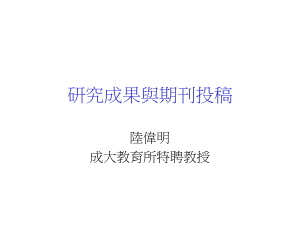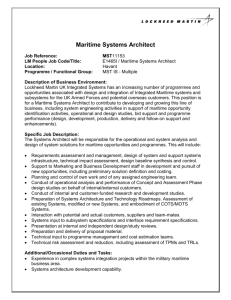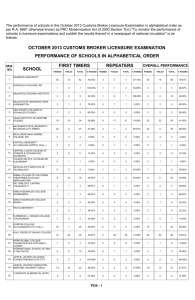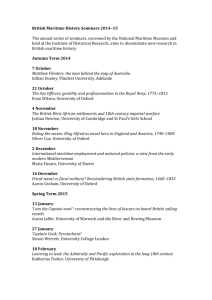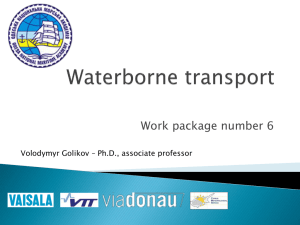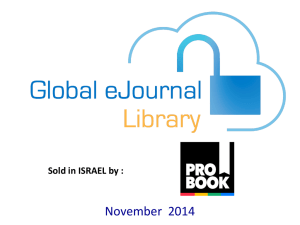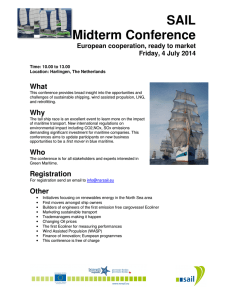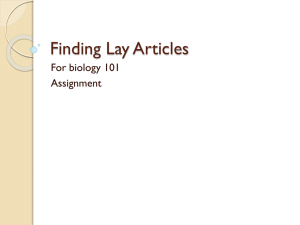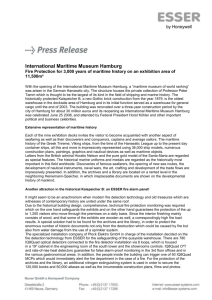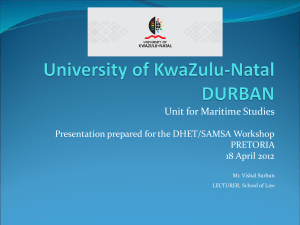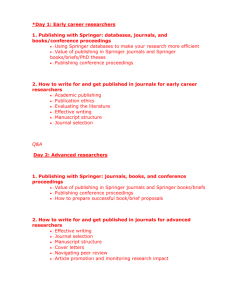Research and Publishing PowerPoint Presentation by Prof. Temario
advertisement
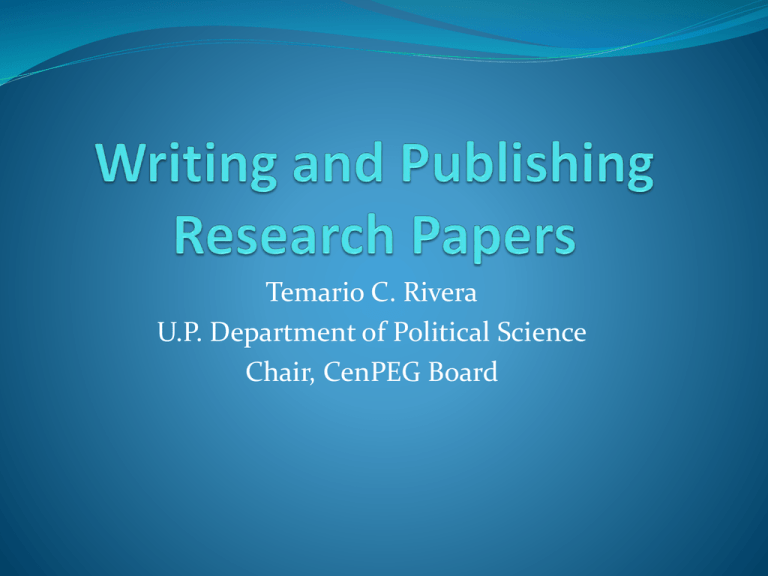
Temario C. Rivera U.P. Department of Political Science Chair, CenPEG Board Research and Publishing for Higher Education Why do we need to do research as teachers in higher education institutions? Research as an integral process of effective teaching. Research as the production of new knowledge. Research as an input for socio-economic development for our country and people. Research: Types and Approaches Basic research and applied (policy- oriented research). Descriptive and Explanatory (causal) research. Research Methodologies: Qualitative and Quantitative Common Elements of Good Research Writing Clarity: is the research problem clearly stated? The most challenging and interesting research problem is usually framed as a “Why” problem. (Why is the maritime industry/navy in the country relatively undeveloped considering that we are an archipelago?) Cohesion: are the assumptions and arguments of the research framework, methodologies used, and the findings, and policy recommendations ( if policy-oriented) logically linked with each other? Conciseness: is the completed paper concise enough to be published as a monograph or a journal article? Highlighting what is new, innovative, appropriate and feasible in the findings, especially for policy-oriented research studies. How are Policy Research papers different from other research papers? Key Difference: Policy papers aim not only to understand and explain a specific problem but also offer a set of policy proposals backed by research findings to address the problem. Policy research papers are typically framed as “Why” and “How To” problems. Much of policy research papers also aim to assess the status and efficacy of existing policies and provide alternative policies if such policies are seen as ineffective. Challenges of Publishing Policy Research Papers Publishing in professional peer-reviewed journals. International Scientific Indexed (ISI) journals in the social and natural sciences and the humanities. Responding to the peer-review process. “Double- blind” peer review system. Impact factor of professional journals. Publishing formats: book, monograph, journal article. Improving research output and inhouse academic journals Conduct regular research seminars for the faculty with emphasis on good writing and research methodologies. Institute a system of academic awards and material incentives for good research studies and published works. For instance, the promotions and tenure system can include an assessment of research and publications record. For publications, aim for a system of “peer-review” for published works. Some Maritime studies-related research problems Philippine compliance issues on the ratification of the Maritime Labor Convention (MLC). Philippine compliance issues and policy responses to the international convention on Standards of Training, Certification, and Watchkeeping for seafarers (STCW). The CHED and MARINA: Professional and Regulatory conflicts over maritime higher education institutions. Policy reforms to upgrade the country’s maritime capabilities: the Navy, Coast Guard, and domestic maritime transportation. Some Policy Research Topics Politics: Institutional reforms to strengthen political parties and weaken electoral dominance by political families. Alternative governance institutions to facilitate the peace process in the Muslim-majority provinces in Mindanao. Amending the Party List Law: Revisiting the recent Supreme Court (Carpio ruling). The Automated Election System: an alternative to the PCOS Economic development: Development policy alternatives to the overseas employment (OFW) program. Socio-economic impact of the conditional cash transfer (CCT) program. Some ISI Philippine Professional Journals

